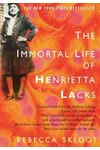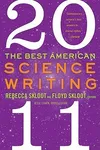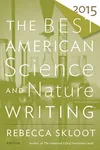Picture an American storyteller who turned a forgotten name into a global conversation about science and ethics—meet Rebecca Skloot! This science writer’s breakout book, The Immortal Life of Henrietta Lacks, didn’t just hit bestseller lists; it sparked debates on medical ethics, race, and consent, all while weaving a human story that’s impossible to put down. With a knack for blending rigorous research with heartfelt narrative, Skloot has redefined what science writing can do.
Born in Springfield, Illinois, in 1972, Skloot’s journey to literary stardom was anything but ordinary. From veterinary technician to award-winning journalist, her path reflects a relentless curiosity about the world—and the ethical questions that shape it.
The Making of Rebecca Skloot
Rebecca Skloot grew up with a poet father, Floyd Skloot, and a knitter mother, Betsy McCarthy, in a blend of Midwestern and New York Jewish roots. A self-described science nerd, she initially flunked ninth grade due to poor attendance but found her spark at an alternative high school in Portland, Oregon. There, a community college biology class introduced her to Henrietta Lacks, a name that would define her career. Skloot earned a BS in biological sciences from Colorado State University, intending to become a veterinarian, but writing classes shifted her focus. She later honed her craft with an MFA in creative nonfiction from the University of Pittsburgh, setting the stage for her narrative-driven science journalism.
Before writing books, Skloot worked over a decade as a veterinary technician, from animal shelters to research labs. These experiences shaped her fascination with the ethical gray areas of science, a theme that permeates her work. Her early articles, published in outlets like The New York Times Magazine and O, The Oprah Magazine, tackled quirky yet profound topics like goldfish surgery and tissue ownership, showcasing her ability to make science accessible and gripping.
Rebecca Skloot’s Unforgettable Stories
Skloot’s debut, The Immortal Life of Henrietta Lacks (2010), is her magnum opus. This meticulously researched book tells the story of Henrietta Lacks, a Black tobacco farmer whose cervical cancer cells, taken without consent in 1951, became the immortal HeLa cell line—revolutionizing medicine with breakthroughs like the polio vaccine and gene mapping. Skloot spent over a decade weaving three narratives: Henrietta’s life, the scientific impact of HeLa cells, and the Lacks family’s struggle with their mother’s legacy. The result is a page-turner that’s both a science lesson and a meditation on race, class, and bioethics.
Beyond her book, Skloot’s journalism shines in publications like Discover and Popular Science. Her essays and features, often anthologized in collections like Best Food Writing, explore diverse topics from wild dogs in Manhattan to the politics of medical research. She co-edited The Best American Science Writing 2011, cementing her influence in the genre. Currently, she’s working on a second book about the ethics of animal research, promising another deep dive into science’s moral complexities.
Skloot’s style is her superpower: she combines journalistic precision with novelistic flair, making complex science feel intimate and urgent. Her ability to humanize scientific discovery—while confronting uncomfortable truths about systemic inequities—sets her apart in narrative nonfiction.
Why Rebecca Skloot Matters
Rebecca Skloot’s work transcends science writing, igniting conversations about consent, racial justice, and the human cost of medical progress. The Immortal Life of Henrietta Lacks has been translated into over 25 languages, adopted by countless schools, and adapted into an Emmy-nominated HBO film starring Oprah Winfrey. Skloot’s advocacy through The Henrietta Lacks Foundation, which she founded to support families like the Lackses, underscores her commitment to righting historical wrongs. By giving voice to the voiceless, she’s reshaped how we think about science’s ethical boundaries.
Her influence extends to aspiring writers and scientists, inspiring them to blend storytelling with social impact. Skloot’s lectures, from Virginia Tech to Harvard, continue to spark dialogue, proving her story is far from finished.
About Rebecca Skloot
- Born: September 19, 1972, Springfield, Illinois
- Key Work: The Immortal Life of Henrietta Lacks (2010)
- Awards: Chicago Tribune Heartland Prize, Wellcome Trust Book Prize, National Academies Communication Award
- Fun Fact: She once worked in an animal morgue, fueling her interest in science ethics.
Ready to dive into a story that’s equal parts science and soul? Grab The Immortal Life of Henrietta Lacks and discover why Rebecca Skloot’s narrative nonfiction is a must-read!


